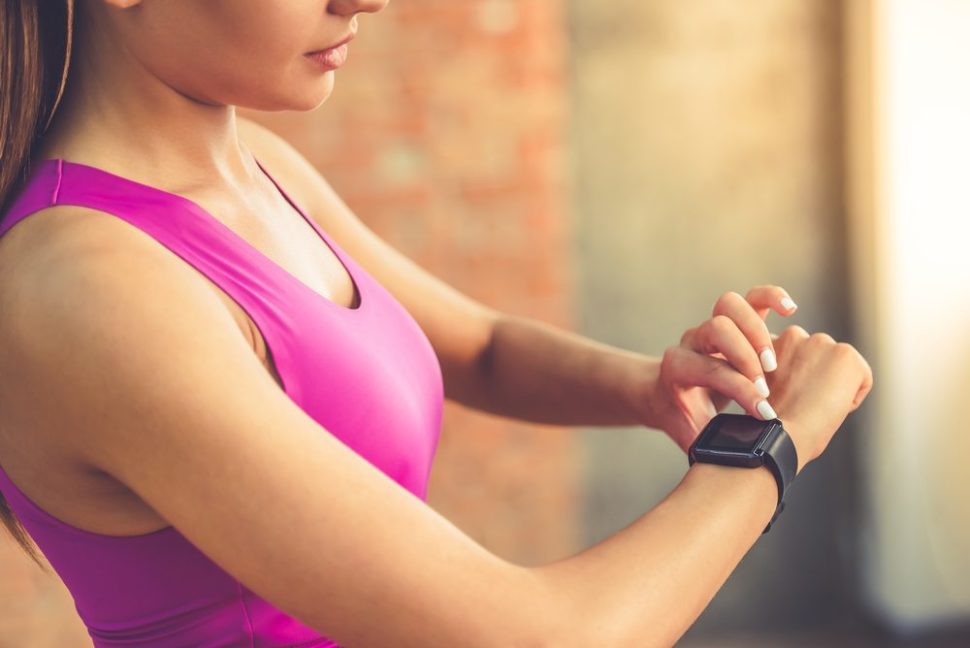Even if you stop using electronics two hours before bed or use a blue light filter, getting good sleep can be difficult these days. Some people invest devices like a Fitbit or smartwatch to monitor their fitness and sleep.
Science fiction would have us believe that these kinds of devices are the future.
But does techwear enable people to get better sleep or is it just a placebo effect?
The Promise of Fitbits and Other Techwear
Just like most customer-focused products, not all techwear is created equal. There is also a definite difference between fitness trackers and smartwatches.
Some, like the Samsung Gear Fit2 tries the hybrid method. FitBit offers its own hybrid in the Fitbit Charge 2 that tracks fitness and provides call/text alerts. But most high profile fitness trackers all offer heart rate monitors and pedometers while also claiming to track sleep patterns.
But the high initial cost of fitness trackers can deter many people. After all, you can get a waterproof watch for less than $13 USD on Amazon. Why should you invest in a glorified wristwatch that isn’t waterproof?
Apparently, you can get better sleep using the sleep monitoring services. The fitness tracking can also help people get in shape or get more active.
Fitbit goes so far as to say you can “start sleeping better” by using their sleep tracking. How does this work and does it really help you sleep better?
Moreover, do these results justify the high initial cost of techwear?
How These Devices Monitor Sleep
That graph looks like someone’s very unsuccessful polygraph test. But it’s actually someone’s sleep chart after using Fitbit’s sleep program.
The colors correspond to different stages of wakefulness or sleep as below:
- Pink is “Awake”
- Sky blue is “Light Sleep”
- Dark blue is “Deep Sleep”
- Light blue is “REM”
Fitbit goes so far as to explain what each stage is and what it does for your body.
Once you have some data on how you sleep, you can make a sleep schedule. In essence, Fitbits gamify sleep monitoring for the objective of better sleep. Gamification can be used to positive ends, as we have covered, but only if it works.
Both studies and anecdotal evidence offer data to help potential buyers make a decision.
What Qualifies as “Good” Sleep?
Sleep affects multiple processes integral to everyday and long-term function in humans.
Sleep debt (or lack of sleep) can adversely affect reaction times, memory, and overall health. So getting “good sleep” for the recommended amount for someone your age matters. But, like techwear, not all sleep is created equal.
Sticking to a schedule matters most of all in getting consistently good sleep. That means that people like me (both a night owl and “late weekend sleeper”) are the most prone to poor sleeping habits.
Your body can’t adjust to a constantly changing sleep schedule and you can’t “catch up” on missed sleep. Fitbits claim to help people maintain a schedule using sleep patterns and silent alarms.
You also need to sleep for what your body needs. For instance, I only really need about six hours of sleep to feel refreshed. But if I sleep for eight hours, I feel tired when I wake up.
These are the kinds of things Fitbits and other fitness trackers claim to help. By monitoring how you sleep, when you sleep, and activity levels, you can “hack” your body.
This isn’t the biohack I would prefer, but until I can get robot eyes, I’ll take good sleep.
Final Verdict: Results May Vary
Consumer Reports wrote about the Fitbit sleep tool “Sleep Stages”, as detailed in this article above. But it also talks about “Sleep Insights” which compiled data from 3 billion nights of sleep.
Based on this data, Fitbit concluded that their system helps people identify their sleep needs. Specialists consulted on this particular study raised a few concerns.
Dr. Allison Siebern from the Stanford University sleep center cited this as a “one size fits all approach.” But Siebern and her colleagues acknowledged many questions still surrounding Fitbit sleep tracking. Such issues included:
- Depending too much on Fitbit user movements related to sleep levels
- Little transparency regarding sleep tracking algorithms
- Tacit encouragement of bad sleep habits by spurring increased time in bed
Fitbit points to two other studies that confirm their claims about their sleep tracking techwear. However, some remain skeptical. Reviewers on sites like Engadget cited issues with the bracelet placement which affected sleep data.
But The Verge noted that Fitbit wants to invent a sleep apnea tracker, as well. This would be a huge step for techwear and fitness trackers. Of course, the trick comes in Fitbit being able to innovate the technology for it.
It seems like the results of “sleeping better” will vary from person to person. Perhaps, as techwear includes better technology, we will see better results from consumer-focused products.



















RECOVER YOUR LOST/STOLEN BITCOIN WITH THE HELP OF GEO COORDINATES HACKER
Cryptocurrency investment halted and turned my life upside down after I invested almost everything that I had worked for all my life. I found myself in a desperate situation after losing 3.7 Million to Bitcoin investment for cryptocurrency. I was depressed and sad until my research took me to a website of GEO COORDINATES HACKER. I explained my situation to them and they assured me to help me get my money back. I gave it a try and they definitely did a great job, all my money was recovered back into my wallet account just within a few days. I’m glad I was able to recover my stolen crypto. Their service is truly reliable. I’m grateful to them. You can get in touch with them through their
Email; geovcoordinateshacker@proton.meEmail; geovcoordinateshacker@gmail.com Telegram ( @Geocoordinateshacker )Website; https://geovcoordinateshac.wixsite.com/geo-coordinates-hack